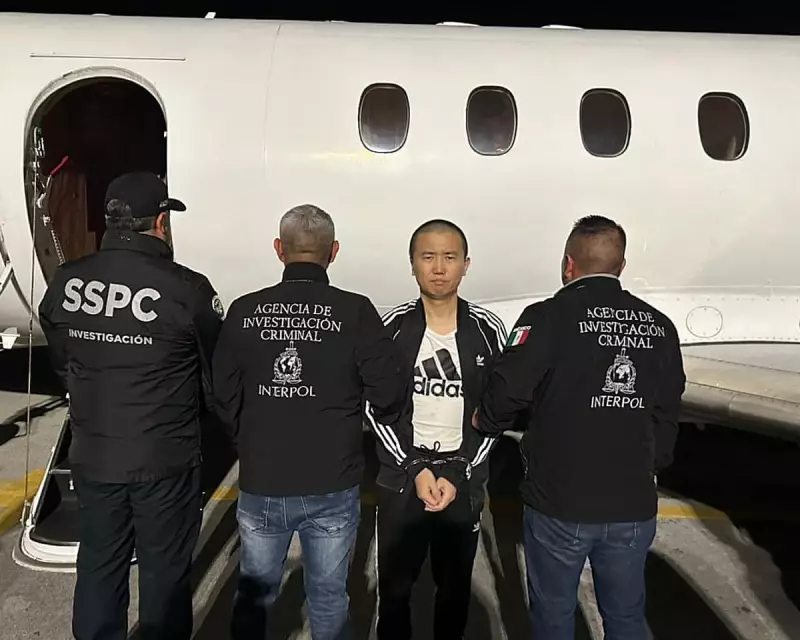
The Great Escape That Shook International Law Enforcement
In a dramatic sequence of events that reads like a spy thriller, alleged drug trafficker Zhi Dong Zhang, better known by his alias 'Brother Wang', managed an audacious escape from house arrest in Mexico City last July before his eventual capture and extradition to the United States.
The escape involved sneaking through a tunnel into a neighbouring property, completely evading the soldiers assigned to guard him. This carefully orchestrated breakout demonstrates the sophisticated planning and resources available to international drug networks.
International Manhunt Across Three Continents
Following his escape, Zhang's journey took him to Cuba and reportedly Russia before his eventual arrest. The Cuban government announced his capture in late October, immediately flying him back to Mexico where he was promptly extradited to face justice in the United States.
Zhang now stands trial in a Brooklyn courtroom, accused of smuggling tons of chemical precursors used to manufacture fentanyl for Mexico's most powerful criminal organisations: the Sinaloa and Jalisco cartels. Additional charges include trafficking cocaine and crystal meth, along with laundering nearly $100 million through hundreds of shell companies and US bank accounts.
During his court appearance, Zhang denied all charges against him.
The Chinese-Mexican Criminal Nexus Deepens
Experts highlight that Zhang's case underscores the increasingly sophisticated relationship between Chinese criminal networks and Mexican cartels. Vanda Felbab Brown, an organised crime expert at the Brookings Institution, noted that this case demonstrates how crucial Chinese networks have become to the core operations of Mexican criminal groups.
Chris Urben, a former Drug Enforcement Administration agent now with investigations firm Nardello & Co, described Zhang as a 'convergence target' - someone even more valuable than a kingpin because of his involvement across multiple criminal operations.
Zhang's background made him particularly valuable to these networks. Having arrived in Mexico before the coronavirus pandemic, he married a Mexican national and obtained citizenship, becoming culturally fluent in both countries' criminal underworlds.
Sophisticated Money Laundering Operations
The arrest has drawn attention to the explosive growth of Chinese criminal groups' involvement with Mexican cartels over the past decade. According to Urben, these groups have become the principal money launderers for drug sales proceeds in the United States.
The laundering process exploits China's capital controls, which restrict citizens to moving approximately $50,000 annually out of the country. The system works through a complex exchange where Mexican cartel associates deliver US drug cash to Chinese nationals in America, while associates in Mexico pay the cartels in pesos.
The money launderers then sell the dollars to Chinese citizens seeking to invest in US property, receiving payment in yuan within China. This entire process happens almost instantaneously without money crossing borders, making it exceptionally difficult to trace.
Commission rates as low as 1-2% are possible because launderers can impose costs on Chinese customers seeking to move money abroad, dramatically undercutting previous methods that charged 7-10% and took up to ten days.
Despite Zhang's capture, experts caution that criminal networks' adaptability means his arrest is unlikely to significantly disrupt precursor chemical supplies to Mexican cartels. However, his extradition provides US law enforcement with valuable intelligence about the extensive networks he operated within.





